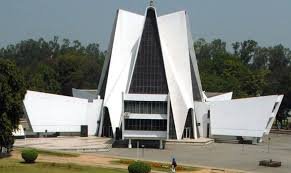PUNJABI UNIVERSITY is a collegiate state public university located in Patiala , Punjab , India . The second university in the world to be named after a language, after Hebrew University of Israel . Originally it was conceived as a unitary multi – faculty teaching and research university , primarily meant for the development and enrichment of the Punjabi Language and culture , but alive to the social and education requirements of the state .
| Established | April 30 , 1962 |
| Type | Public state university |
| Chancellor | Governor of Punjab |
| Vice – Chancellor | K. K. YADAV |
| Location | Patiala , Punjab , 147002 |
| Campus | Urban |
| Language | Punjabi , English |
| Affiliations | UGC, NAAC, AIU |
APPLY NOW

History
Punjabi University was set up in 1962. Its main objectives being to promote Punjabi Language as also history and culture of the Punjab. It is to meet this prime objective that Department of Punjab Historical Studies was set up in 1965 under the stewardship of Dr. Ganda Singh.But promotion of any academic discipline depends on simultaneous taking of research and teaching. It was to meet the requirements in teaching that a separate Department of History was set up in 1967. Conjointly headed by Dr Fauja Singh, both the departments set a tone in research and teaching respectively. Fauja Singh was succeeded by Dr. S.S. Bal, who was later elevated to be the Vice Chancellor of Guru Nanak Dev University, Amritsar. Subsequently the Department was headed by Dr. A.C. Arora, Dr. Y.P. Bajaj, Dr. S.K. Bajaj, and Dr. D.S. Dhillon, Dr.Shiv Kumar Gupta, Dr. Jaspal Kaur Dhanju, Dr. Sukhninder Kaur Dhillon and Dr. Kulbir Singh Dhillon. At present it is being headed by Dr. Sandeep Kaur. The Department was oriented towards innovations in the teaching of history at post-graduate level and for research at M.Phil and Ph.D. levels. Faculty specializations cover all fields of Indian History consequently span of research is also very extensive.
The work in this area includes structure and change in Medieval Indian Society, the administrative structure and authority system in medieval India , agrarian developments, growth of trade and commerce and art and architecture. A special feature is on the study of Medieval Indian Institutions.
The perspective on Modern History is in relation to the study of colonialism, imperialism and industrialisation. A major interest centres on study of constitutional development , Socio- religious reform movements,workers and peasants associated with nationalism in context of their social, economic and political aspirations. Special emphasis being on study of National Movement in view of the colonial experience. Non Indian History It is to infuse global perspective among the students that two papers have been introduced on World History. The importance of World History is not merely to fill information gaps but also to draw upon subjects with a coherent and well developed historiography.
CAMPUS:
The University campus is spread over an area of over 600 acres
(2.4 kilometre square ).on the Patiala – Chandigarh road, about 7 kilometres from Patiala . The institution has more than 70 teaching and research departments. Covering disciplines in Humanities , Science, Engineering , Pharmacy , Law , Fine Arts , Computer Science and Business Management . University also conducts various degree, Diploma and Certificate courses through distance learning. University not only caters to students from northern region, but students from African countries also take admission here.
The campus has amenities like a State Bank of India branch, Post Office, Science and Arts Auditorium, Open – air theatre, guest and faculty houses, seminar complexes, faculty club, botanical garden and several spacious lawns a model school and own fleet of buses for transportation of students and staff.
Regional centres and Neighborhood campuses:
The University has four regional centres :
| The Guru Kashi regional centres | Bathinda |
| Guru kashi Campus | Talwandi Sabo |
| Information Technology and management | Mohali |
| Nawab Sher Mohammad khan institute | Malerkolta |
Punjabi University also maintains seven neighborhood campuses at Rampura, Phul, Jhunir, Sardulgarh, Ralla, Maur, Jaito, and Dehla Seehan.
Constituent colleges
The university has also established 13 constituent colleges at Mansa, Rampura Phul, Sardulgarh, Ghudda, Bahadurpur (Mansa), Barnala, Benra (Dhuri),Chuni Kalan, Dhilwan, Ghanaur, Jaito, Meera Pur and Moonak.
Landmarks
GURU GOBIND SINGH BHAWAN
- Guru Gobind Singh Bhawan
- Bhai Kahn Singh Nabha Central Library
- Guru Teg Bahadur Hall
- Charlotte Aujla Auditorium, Kala Bhawan
- Gol Market
- Art Gallery
- Yadavindra college of Engineering .
Organization and Administration:
The governance of the university is conducted through the Syndicate, which is the highest decision – making body of the university. The Syndicate approves matters pertaining to the administration of the university as well as academics, once the academic council has passed the matter. The vice-chancellor is chairman of the syndicate. The governor of Punjab is chancellor of the university and titular head of the university. The senate and academic council are other advisory and decision-making bodies of the university. All these bodies of the university were established under the Punjab Act no.35 of 1961.
The teacher’s elected body is Punjabi University Teacher Association (PUTA) and other staff is represented through employees association. The elections to both these association has been conducted annually.
APPLY NOW
Academics:
Punjabi University is a large, primarily residential and affiliating university. University follows a semester system with Autumn semester usually starting in late July and Spring semester ending in early May. Academics at University is organized into eleven faculties and departments under various faculties.
The prominent university departments are:
1.University College of Engineering (CSE/ECE/ME/CE).
2.Department of Computer Science.
3.Punjabi Department.
4.Linguistics Department.
5.School of Management Studies.
6.Economics.
7.Mathematics.
8.Department of Physiotherapy.
9.Department of Biotechnology.
10.Department of Pharmaceutical Sciences & Drug Research.
11.S.Daljit Singh Sethi Physics Department.
12.Department of Education and Community services.
13.Department of Botany.
Research centers and institutes
A sprawling lush-green campus, neat, well manicured lawns and trees which are a treat for the eyes of visitors.
University has established various research departments and chairs to conduct research work in various fields of study.
- Centre for Development Economics and Innovation Studies
- Research Centre for Punjabi Language Technology
- Sri Guru Granth Sahib Studies
- Department of Development of Punjabi Language
- Gurmat Sangeet Chair
Faculty and research: All the departments are involved to promote research culture and spirit. Most of the departments have been able to mobilize additional research funding from UGC, DST, CSIR, Planning Commission, government departments and other official funding agencies. Many of science departments have been able to develop research tie-ups with industry and have undertaken several consultancy assignments. To ensure academic freedom, the departments organize seminars, symposia, conferences and workshops every year. The teachers are encouraged to participate in national and international seminars through liberal funding. Many teachers are invited to deliver plenary lectures and preside over the sessions at seminars and conferences.
APPLY NOW
Admissions:
Admissions to various departments are conducted through centralized admission cell. University conducts many kinds of certificate, diploma, degree and PhD courses in various subjects.

CLICK HERE FOR MORE INFORMATION

University library:
Bhai Kahn Singh Nabha Central Library is a hub of academic and research activities. It stocks more than 415,000 books and subscribes to several hundred journals. The library is kept open for 360 days of the year from 8.15 a.m. to 8.15 p.m. The library has a reading hall, which has a capacity for 400 readers. A separate hall for using the personal books and a Reading Room has been provided at the ground floor. One night Reading Room remains open from 8.00 p.m. to 6.00 a.m. Ganda Singh Punjabi Reference Library, which is an integral part of the library, is housed in a new building interlinked with the main building. This part of the library has 41,548 books on Punjabi Language, Literature, Punjab History and Culture. The University Library is maintains libraries in some of the departments at the campus, Extension Library at S.A.S.Nagar (Mohali), and a Library at Regional Center Bathinda. Besides, Balbir Singh Sahitya Kendra, Dehradun has a library containing rare books and manuscripts.
Punjabi University, Patiala has won many awards and achieved many things, including:
Sports
Won the Maulana Abul Kalam Azad (MAKA) Trophy 10 times, which is awarded to the best performing university in competitive sports. The university also won the Shri Meghnath Nageshkar Trophy in 2004-05.
Inter-university festivals
Won the overall championship in the Punjab State Inter-University Youth Festival, the All India Inter-University Punjabi Cultural Festival, and the orth Zone Inter-University Youth Festival.
National Assessment and Accreditation Council (NAAC) grade
Received the highest “A” grade on a four-point scale from the NAAC, an autonomous institution of the University Grants Commission.
National awards for books
Won two national awards for its books, including Gadudan dian samseyanwan by Dr Baldev Singh Aulakh and Dr Manjit Singh Bal, and Waaran by Bhai Gurdas by Dr Sarabjinder Singh (Ed).
Student representation
Students have represented India in festivals in China, Germany, Mauritius, Spain, U.A.E. (Dubai), and the former USSR.
Student life:
Sports
Students are encouraged to take active part in sports. Facilities for games such as hockey, football, cricket, basketball, volleyball, athletics, etc. and well as indoor games are provided. The Punjabi University has a large gymnasium and a hall for indoor games. It is one of the very few institutions in India to possess its own velodrome.
The university has been awarded Maulana Abul Kalam Azad (MAKA) Trophy nine times, the latest being in the year 2016–2017. MAKA Trophy represents the highest award given for inter-university sports and university sportsperson performance in international and national arena by the Government of India.
Hostels
There are three residential hostels for boys and four residential hostels for girls. The hostels house 4000 students. In addition to this, separate boys and girls hostel for engineering college have started functioning.
Health services
Punjabi University, a hub of sporting excellence
A health center has an X-ray unit and a laboratory for medical tests. The center has an AIDS awareness wing. Students are entitled to free medical aid by the University Health Center.
Other facilities
The university has also established a placement cell for personality development and job assistance to students. An IAS training centre has been established at university, where coaching for various competitive exams have been imparted. The transport department runs a fleet of buses for linking the campus to various parts of Patiala city.
